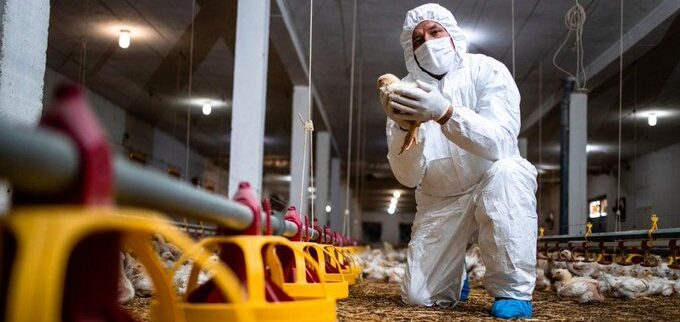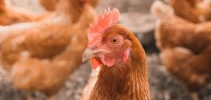If the risk to humans remains small, the growing number of cases among mammals is considered worrying, according to experts interviewed by AFP.
ADVERTISING
Since its appearance in 1996, the H5N1 bird flu virus has caused seasonal contagion.
But “something happened” in mid-2021, as the virus became more infectious, according to Richard Webby, virologist and director of the World Health Organization (WHO) research center on avian pathologies.
Since then, epizootics have become annual and spread to new regions, causing large-scale deaths of wild birds and the elimination of tens of millions of birds.
ADVERTISING
For Webby, this is the largest bird flu epizootic ever known.
Richard Webby coordinated the research, published this week in the journal Nature Communications, which shows that the virus evolved quickly, spreading from Europe to North America.
Scientists also infected a ferret with one of nine strains of bird flu. They found a “huge” and unexpected amount of virus in his brain, which shows a more severe illness than with previous strains, he told AFP.
ADVERTISING
Although noting a still small risk for humans, Webby highlighted that “this virus is not static, it evolves, which increases the risk that, even by chance, the virus may acquire genetic traits that allow it to become a human virus” .
There are few cases of humans contracting the sometimes deadly virus, usually after close contact with infected birds.
But the detection of the disease in a growing number of mammals, including new species, is “a truly worrying sign,” Webby said.
ADVERTISING
Last week, Chile announced that nearly 9.000 seabirds had died from bird flu on the country's north coast since the start of 2023. Most had reportedly contracted the virus after eating infected birds.
“Recent transmissions to mammals must be closely monitored,” warned the director general of the World Health Organization, Tedros Adhanom, in February.
However, there is “no clear evidence that this virus easily persists in mammals”, according to Ian Brown, director of virology at the British Animal and Plant Health Agency.
ADVERTISING
And even though the virus continues to evolve to be “more effective in birds”, it continues to be “inadequate for humans”, he told AFP.
One of the biggest ways to reduce the number of bird flu cases and reduce the risk to humans would be to vaccinate birds, highlighted Richard Webby.
Some countries, including China, Egypt and Vietnam, have already organized vaccination campaigns. But others balk at possible restrictions on imports and fears that infected birds will slip through controls.
Read also
* The text of this article was partially generated by artificial intelligence tools, state-of-the-art language models that assist in the preparation, review, translation and summarization of texts. Text entries were created by the Curto News and responses from AI tools were used to improve the final content.
It is important to highlight that AI tools are just tools, and the final responsibility for the published content lies with the Curto News. By using these tools responsibly and ethically, our objective is to expand communication possibilities and democratize access to quality information. 🤖




